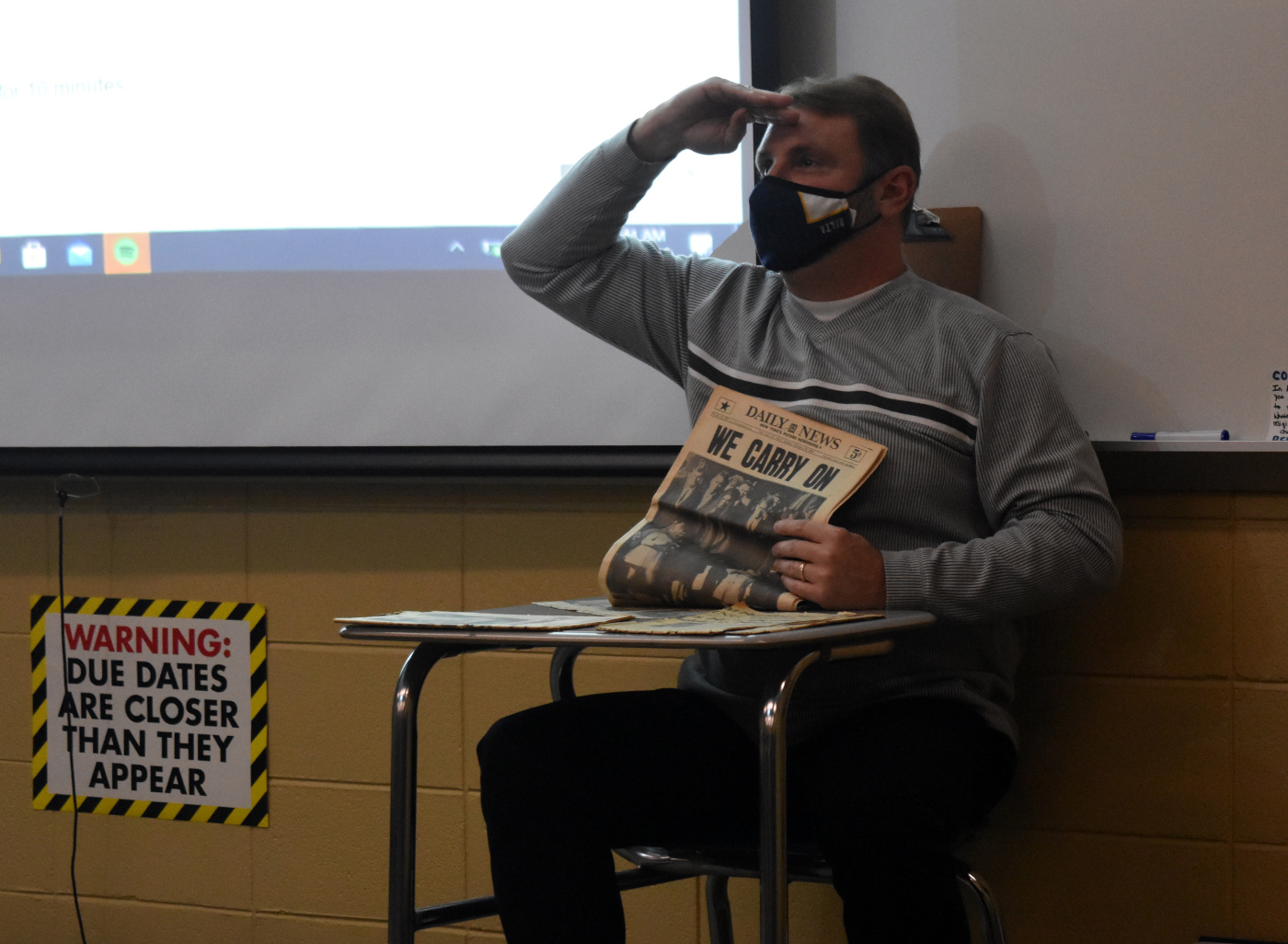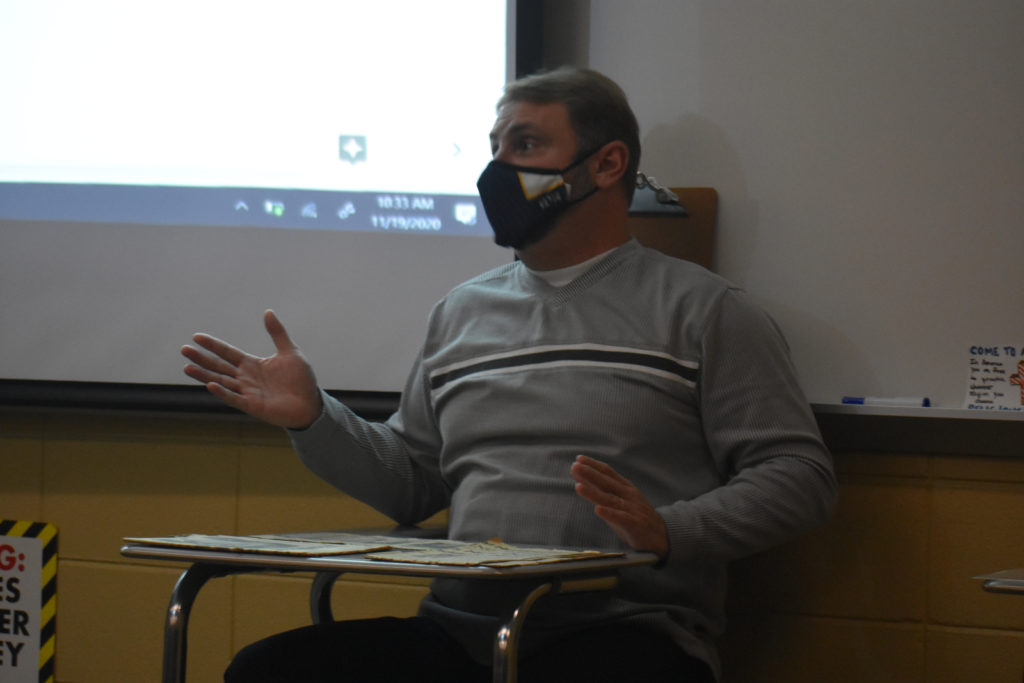By Zach Carter
On the first day of school, a student asks his history teacher about a random Super Bowl. The teacher tells the class the teams that played the game, the final score, and the Most Valuable Player. The student selects another of the 53 Super Bowls.
“Super Bowl X,” the student says.
“Oh that’s easy,” the teacher responds. “My Steelers beat the Cowboys 21-17 in Miami. Lynn Swann was the MVP.”
Is this guy crazy? How does he know this?
To history teacher Mr. Brad Himes, it is his special talent.

“Anything that is important to you, you are going to remember,” he says. “’This is what I do. I have always been intrigued by sports history, U.S. history, and things like that.”
Some may wonder how he remembers all of these random facts. It started when he was in high school.
Before he was interested in history, he wanted to coach basketball. He was a four-sport athlete (cross country, basketball, track and field, and baseball) at Delta High School.
But it was social studies teacher Mrs. Pat Ervin who changed his mind.
He says, “When I was a junior in high school, I had a great history teacher. She really encouraged me to go down this field.”
Ervin’s class would play trivia games. After doing this for a while, students in the class said it was not fair if Himes played. Some of his top trivia categories include sports and presidents.
The most random thing that Himes thinks he knows deals with the Civil War.
“The Civil War began and ended on the same guy’s property. A guy named Wilmer McLean owned a farm in Virginia (at the site of) the first major battle of the war, Bull Run. He hated war and hated dead bodies. So he moved in state to get away from the war. The town he moved to was Appomattox Court House, where the war later ended. Lee literally surrendered to Grant in (Wilmer McLean’s) kitchen. The war began in his back pasture and ended in his kitchen.”
Himes is not the only one in the family to remember things.
“My dad is great at telephone numbers and can still remember the numbers of his friends from high school,” he says. “‘He is like a walking Rolodex.”
Himes believes that his good memory has helped him throughout his life. Some examples are jobs and anniversaries.
After finishing high school and college, his teaching career started. To his students, his strategy is different.
Junior Eli Arnold says, “He tries to include everyone into scenarios and includes us into everyday class.” Arnold adds that “he keeps us interested in the talk.”
Another student, junior Zion Griffis, says, “It seems when he is talking, it comes off to me personally, that he knows a lot more about his subject than other teachers know about theirs.”
Himes himself knows about his unusual teaching methods.
“It is definitely unorthodox,” he says. “‘I am a believer that it does not make a difference how smart you are as a teacher if you cannot communicate. Trying to get my students to identify with the knowledge that I am trying to grab onto is the biggest thing.”
During his career of teaching history, Himes has learned some important truths. He hammers on the idea that people need to agree to disagree.
“That is something that is bothersome to me in this day and age that so many people can’t (agree to disagree),” he says. “‘I have some really good friends that are politically different than me. It’s not like a character defect or something. We just view it differently.”
Himes also uses his teaching platform to encourage students to think independently.
He says, “There are too many people that are lazy and do not think for themselves.”
To some, Himes’s memory is a freak of nature. But there is one thing that is for sure. If you ever have a sports or history question that no one can answer, talk to Brad Himes.






